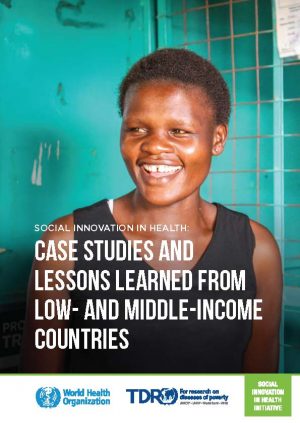03 Nov Social Innovation in Health: Case Studies and Lessons Learned from Low- and Middle-Income Countries
In October 2017, the Social Innovation in Health Initiative featured LifeNet International in a set of case studies focused on innovations in health in underserved regions of the world.
Published by the World Health Organization (WHO) on behalf of the Special Programme for Research and Training in Tropical Diseases (TDR), Social Innovation in Health: Case Studies and Lessons Learned from Low- and Middle-Income Countries compiles three years of research from the Social Innovation in Health Initiative. LifeNet International is one of 23 case studies included in the published research.
In the preface to the report, the director of service delivery and safety at the WHO and the director of the special programme for research and training at TDR challenge readers to ask themselves the following question: “What if community-based social innovations are a key element of the success of the global development agenda in 2030? This publication provides some hints as to what is possible, and hopefully will stimulate countries and communities to undertake similar approaches.”
The LifeNet case study explores LifeNet operations in Burundi and highlights the significant improvements in provider knowledge of evidence-based medical and management best practices that occur as a result of LifeNet’s work. The case study concludes:
“LifeNet demonstrates the use of social franchising as a mechanism to encourage the active engagement of all health facilities within a network in order to improve standards and enhance skillsets.”
You can read the full report on the TDR website. The LifeNet case study begins on page 35 of the publication.

